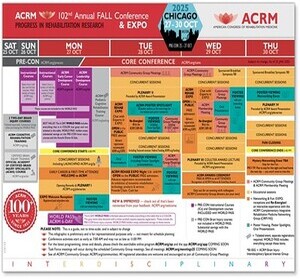
Phillip Rumrill, PhD, CRC
Red Cedar Distinguished Professor of Counseling and Counselor
Michigan State University
Phillip Rumrill, Ph.D., CRC, is a Professor in the Department of Early Childhood, Special Education, and Counselor Education at the University of Kentucky (UK) in Lexington. He also serves as Director of Research in the UK Human Development Institute. From 1996 to 2020, Dr. Rumrill was a Professor and Coordinator of the Rehabilitation Counseling Program and Founding Director of the Center for Disability Studies at Kent State University in Ohio. He also served for many years as Director of the Multiple Sclerosis Employment Assistance Service, which provided vocational services and supports to people with multiple sclerosis across the United States. A nationally Certified Rehabilitation Counselor, Dr. Rumrill received his bachelor’s and master’s degrees from Keene State College in New Hampshire and his doctorate from the University of Arkansas.
Over the course of his career, Dr. Rumrill has authored or co-authored 335 professional journal articles; 73 book chapters, monographs, measurement instruments, magazine articles, research briefs, and training manuals; and 16 books entitled Rehabilitation Counseling and Emerging Disabilities; Case Management and Rehabilitation Counseling; Foundations of the Vocational Rehabilitation Process; The Sandwich Generation’s Guide to Elder Care; New Directions in Rehabilitation Counseling; Employment Issues and Multiple Sclerosis (two editions); Multiple Sclerosis: A Guide for Rehabilitation and Health Care Professionals; Research in Rehabilitation Counseling (three editions); Research in Special Education (three editions); Occupational Neurology; and Emerging Issues in Rehabilitation Counseling. He has also guest-edited 35 special issues of professional and academic journals in the fields of education and rehabilitation, and he serves as Co-Editor of the Journal of Rehabilitation, which is the official journal of the National Rehabilitation Association. Dr. Rumrill is a highly sought speaker at national and international conferences in health care, social sciences, rehabilitation, and education. He has delivered 777 addresses to consumer, professional, academic, and policymaking audiences in 47 states and U.S. territories and 17 foreign countries since 1992.
Dr. Rumrill's direct service experience includes substance abuse counseling, academic advising, and accommodation planning with postsecondary students with disabilities; vocational guidance and career counseling with a variety of disability populations; program evaluation services on Federal research, training, and workforce development grants; and vocational expert services in civil litigation. He has extensive experience writing grant proposals and administering funded projects; he has had management roles on 47 federal, state, and private foundation grants whose total budgets exceed $57 million. From 2006-2011, he served as Co-Principal Investigator and Research Director of the Coordination, Outreach, and Research Center for the Americans with Disabilities Act National Network, funded by the National Institute on Disability, Independent Living, and Rehabilitation Research (NIDILRR). Among Dr. Rumrill’s current grants are several NIDILRR-funded projects to promote seamless transitions and postschool outcomes for young adults with significant disabilities and a National Multiple Sclerosis Society-funded project examining the impact of the Americans with Disabilities Act on the employment concerns of people with multiple sclerosis from traditionally underrepresented racial and ethnic groups.
Dr. Rumrill’s research interests include aging and disability, issues facing students with disabilities in higher education, assistive technology and reasonable accommodations, chronic illness, the career development implications of disability, workplace discrimination, program evaluation, research design and methodology, and self-advocacy strategies for people with disabilities. He has written and lectured extensively on disability as an element of diversity and human variation, and on the intersection of disability with multiple personal identities related to age, race, ethnicity, socioeconomic status, residential circumstance, sexual orientation, gender, and religion.
Poster(s):
-
Tuesday, October 28, 20255:45 PM - 6:00 PM

.jpg)
.jpg)
.jpg)
.jpg)
.jpg)
